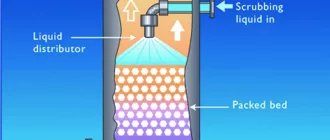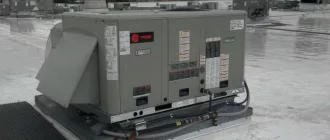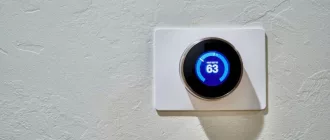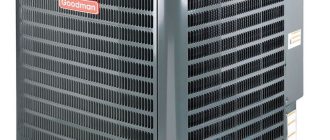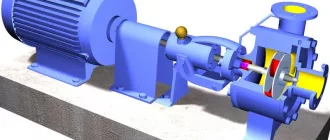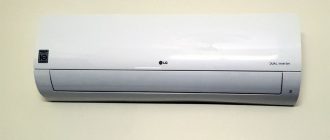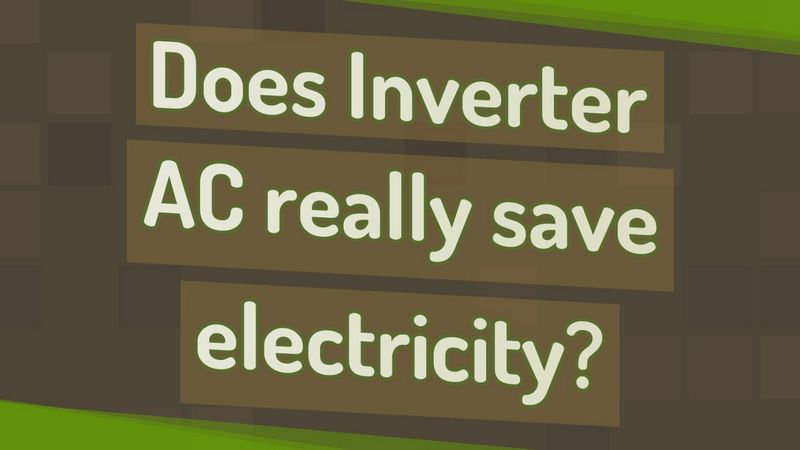
Does inverter AC really save electricity?
When it comes to cooling our homes and offices, air conditioners (AC) have become an indispensable appliance. However, with the rising concern for energy conservation and electricity bills, it’s crucial to find an AC that not only keeps us cool but also saves electricity.
One such solution is the inverter AC. But does it really live up to its claims of being energy-efficient? In this article, we will discuss five important things you should know about inverter ACs and their ability to save electricity.
1. What is an inverter AC?
An inverter AC is an air conditioner that uses advanced technology to regulate the speed of its compressor motor. Unlike conventional ACs, which constantly turn the compressor on and off, an inverter AC controls the speed of the compressor, resulting in less power consumption.
2. How does it save electricity?
A regular AC consumes a significant amount of electricity during start-up, as it requires a surge of power to turn on the compressor. On the other hand, an inverter AC gradually adjusts its speed to meet the cooling requirements, consuming lesser power and helping to save on electricity bills.
3. Does it really make a difference?
Studies have shown that inverter ACs can reduce electricity consumption by up to 30% compared to conventional ACs. This energy-saving feature not only benefits the environment but also translates to substantial cost savings for the user in the long run.
4. The initial cost
While inverter ACs may cost more initially compared to regular ACs, the long-term savings in electricity bills often outweigh the higher upfront investment. It’s important to consider the overall cost-effectiveness and energy efficiency factor when making a decision.
5. Other factors to consider
When choosing an AC, it’s not just the inverter technology that matters. The size of the room, cooling requirements, energy star ratings, and brand reputation should also be taken into account. It’s always recommended to consult with professionals or experts to make an informed decision.
In conclusion, an inverter AC can indeed save electricity, with its ability to regulate compressor speed and reduce power consumption. While the initial cost may be higher, the long-term energy efficiency and cost savings make it a worthy investment for those looking to reduce their electricity bills and contribute to a greener environment.
Understanding inverter technology
Inverter technology is a groundbreaking innovation that has revolutionized the way air conditioners work. It is a technology that allows the AC to regulate its compressor speed based on the cooling demand, thus consuming only the required amount of energy.
Unlike conventional ACs, which consume a constant amount of electricity regardless of the cooling demand, inverter ACs adjust their compressor speed to match the cooling needs of the room. This means that when the desired temperature is reached, the AC reduces its compressor speed, leading to energy savings.
By constantly adjusting the compressor speed, inverter ACs maintain a more consistent temperature in the room and prevent the frequent on and off cycling of the compressor. This not only saves electricity but also extends the lifespan of the compressor.
One important thing to note is that inverter ACs are more energy-efficient when running at lower speeds. This means that if you set the AC to a lower temperature, it will run at a higher speed and consume more electricity. However, even with this increased speed, inverter ACs are still more energy-efficient compared to conventional ACs.
In conclusion, inverter technology in ACs is not just a marketing gimmick. It is a genuinely efficient technology that can save electricity by adjusting the compressor speed based on cooling demand. This results in lower energy consumption, more consistent cooling, and longer-lasting compressors.
Energy efficiency of inverter ACs
One of the key advantages of inverter ACs is their energy efficiency. Unlike traditional ACs that constantly switch on and off to maintain the desired temperature, inverter ACs continuously regulate their speed and power output based on the cooling needs of the room. This results in significant energy savings.
Traditional ACs consume a large amount of electricity when they start up, but once the desired temperature is reached, they switch off. When the temperature rises again, they switch on, using a burst of energy to cool the room. This on-off cycle consumes more electricity and is less efficient.
In contrast, an inverter AC adjusts its speed and power output to maintain a constant temperature. It uses less energy to cool the room and avoids frequent start-ups, leading to energy savings.
Another factor that contributes to the energy efficiency of inverter ACs is their ability to modulate the compressor speed. Traditional ACs have fixed-speed compressors that run at a constant speed, consuming a consistent amount of energy. Inverter ACs, on the other hand, have variable-speed compressors that can adjust their speed based on the cooling demands of the room. This allows them to use only the necessary amount of energy, further enhancing their energy efficiency.
Inverter ACs also have advanced sensors and algorithms that optimize their performance. These sensors can detect the temperature and humidity levels in the room, adjusting the cooling capacity accordingly. This not only saves energy but also ensures optimal comfort for the occupants.
So, to answer the question “Does inverter AC really save electricity?” – yes, it does. Inverter ACs are designed to be energy-efficient, consuming less electricity compared to traditional ACs. They achieve this through their continuous regulation of speed and power output, modulation of compressor speed, and advanced sensors and algorithms.
Savings on electricity bills
One of the main reasons why people choose to invest in an inverter AC is because it can really save electricity. Traditional air conditioners constantly turn on and off to maintain the desired temperature, which consumes a lot of energy. Inverter ACs, on the other hand, adjust their speed and power consumption based on the actual cooling needs of the room.
This intelligent technology allows inverter ACs to maintain a stable temperature without wasting energy. By continuously adjusting the compressor speed, an inverter AC can achieve the desired temperature more efficiently. This means that you can save a significant amount of electricity and ultimately reduce your electricity bills.
According to studies, inverter ACs can save up to 30-50% of electricity compared to traditional air conditioners. This is because they do not have to constantly start and stop, which consumes a lot of energy. Instead, they can operate at a lower speed and maintain a consistent temperature, resulting in energy savings.
In addition, inverter ACs also have other energy-saving features. They often come with advanced temperature sensors that can detect the current temperature of the room and adjust the cooling accordingly. This ensures that the AC is not cooling the room beyond the desired temperature, saving even more electricity.
| 1. Lower power consumption |
| 2. Consistent and efficient cooling |
| 3. Advanced temperature sensors |
| 4. Reduced electricity bills |
Overall, investing in an inverter AC can really save electricity and help you reduce your electricity bills. With its intelligent technology and energy-saving features, you can enjoy a comfortable indoor environment while also being environmentally friendly.
Factors affecting energy consumption
When it comes to the energy consumption of an AC unit, several factors come into play that can impact the overall efficiency and electricity usage. Understanding these factors can help you make an informed decision about choosing an inverter AC unit and how much electricity it can potentially save.
- Inverter technology: Inverter ACs use advanced technology that helps regulate the compressor’s speed. Unlike traditional ACs that turn the compressor on and off to maintain a set temperature, inverter ACs adjust the compressor’s speed to match the cooling demand. This results in a more efficient use of electricity.
- Load: The load, or the cooling demand, is another critical factor that affects energy consumption. If the room is hot and the required temperature is significantly lower than the ambient temperature, the AC unit will have to work harder, consuming more electricity. Inverter ACs, with their variable speed compressors, are better able to handle varying loads and adjust their cooling capacity accordingly.
- Room size: The size of the room you need to cool plays a role in energy consumption. A smaller room requires less cooling, and therefore, less energy. Inverter ACs are ideal for small to medium-sized rooms as they can adjust their output to match the cooling requirements more efficiently.
- Temperature settings: The temperature settings you choose on your AC unit can also impact energy consumption. Setting the temperature too low can lead to excessive cooling and unnecessary energy usage. It is advisable to set the temperature at a comfortable level that balances performance and energy efficiency.
- Maintenance: Regular maintenance of your AC unit is crucial for its optimal performance and energy efficiency. Clean filters and coils ensure smooth airflow and reduce the strain on the compressor. Inverter ACs, too, require regular maintenance to ensure they deliver maximum energy savings.
By considering these factors and investing in an inverter AC, you can potentially save electricity and enjoy a more energy-efficient cooling experience, all while maintaining a comfortable indoor environment.
Optimal temperature settings
When it comes to the optimal temperature settings for your AC unit, it is important to consider the energy-saving benefits of an inverter AC. While traditional AC units may only offer the option to set the temperature in increments of a few degrees, inverter ACs allow for much more precise temperature control.
An inverter AC works by continuously adjusting its compressor speed to maintain the desired temperature. This means that it does not have to constantly turn on and off like a traditional AC unit, resulting in energy savings. However, it is important to note that the energy-saving benefits of an inverter AC can only be fully realized when the unit is used at the optimal temperature settings.
To achieve optimal energy savings, it is recommended to set the temperature on your inverter AC to a moderate level. Setting the temperature too low or too high can result in increased energy consumption. Ideally, the temperature should be set at a level that is comfortable for you while still allowing the inverter AC to operate efficiently.
Additionally, using features such as sleep mode and timer settings can further optimize energy usage. Sleep mode gradually adjusts the temperature throughout the night to ensure comfort while conserving energy. Timer settings allow you to program the AC unit to turn on or off at specific times, so it is not running unnecessarily when you are not at home.
Overall, an inverter AC does save electricity, but it is important to use it at the optimal temperature settings to fully realize its energy-saving benefits. By setting the temperature at a moderate level and utilizing features such as sleep mode and timers, you can maximize energy efficiency and reduce your electricity consumption.
Environmental benefits of inverter ACs
In addition to the energy-saving benefits, inverter air conditioners (ACs) offer several environmental advantages. Here are some key factors to consider:
| 1. Reduced Carbon Emissions | Inverter ACs consume less electricity compared to non-inverter ACs. As a result, they help to reduce carbon emissions and contribute to a greener environment. |
| 2. Energy Efficiency | Inverter ACs are designed to be highly energy-efficient. They use advanced technology to continuously regulate the compressor speed, adjusting it according to the cooling requirements. This means they consume only the necessary amount of energy, saving electricity and reducing the overall impact on the environment. |
| 3. Lower Energy Demand | By consuming less electricity, inverter ACs help to decrease the overall demand for energy. This can have a positive effect on the power grid, reducing the need for additional power plants and infrastructure development. |
| 4. Longer Lifespan | Inverter ACs are generally known to have a longer lifespan compared to non-inverter ACs. This means there is reduced waste generated from the disposal of old units, contributing to a more sustainable environment. |
| 5. Noise Reduction | Inverter ACs operate at lower noise levels compared to non-inverter ACs. The reduced noise pollution can have a positive impact on the environment and the well-being of individuals. |
These environmental benefits make inverter ACs a viable choice for those who are not only concerned about saving electricity but also want to contribute towards a greener and sustainable future.
Noise levels and comfort
One important factor to consider when deciding on an inverter AC is the noise level it produces. Traditional AC units tend to be noisy, which can disrupt your sleep or interfere with other activities in the room. In contrast, inverter ACs are designed to operate quietly, providing a more comfortable environment.
The noise level of an inverter AC is measured in decibels (dB). Most inverter ACs produce noise levels between 20 to 50 dB, which is significantly quieter than non-inverter ACs that can reach 60 dB or higher. This means that you can enjoy a peaceful and quiet sleep without being disturbed by the loud noise generated by traditional AC units.
Additionally, the smooth operation of inverter ACs contributes to better comfort. Unlike non-inverter ACs that constantly turn on and off to maintain the desired temperature, inverter ACs adjust their speed and capacity in real-time, resulting in a more gradual and consistent cooling or heating process. This eliminates sudden temperature fluctuations and provides a more comfortable environment.
Moreover, inverter ACs use advanced technology to reduce vibrations and noise, ensuring a quieter operation. They are equipped with features such as sound-absorbing materials and enhanced compressor design, which contribute to a quieter and more enjoyable experience.
Overall, inverter ACs not only save electricity but also provide a quieter and more comfortable environment. If you value peace and tranquility in your living space, investing in an inverter AC can greatly enhance your overall comfort.
Longevity and durability
One of the key advantages of inverter ACs is their longevity and durability. Inverter ACs are built using advanced technology that enables them to operate at variable speeds, unlike regular ACs that constantly turn on and off at full power.
This continuous operation at variable speeds not only saves energy but also reduces wear and tear on the components of the AC, such as the compressor. In traditional ACs, the compressor is subjected to high stress each time it starts, which can lead to premature failure.
On the other hand, inverter technology allows the compressor to start smoothly at a lower speed before gradually ramping up to the desired speed. This not only prolongs the life of the compressor but also minimizes noise and vibration, resulting in a quieter and more comfortable cooling experience.
Additionally, inverter ACs are usually equipped with high-quality components and advanced features that enhance their durability. These features include corrosion-resistant coatings, self-cleaning functions, and intelligent diagnostics systems that detect and prevent potential issues.
Overall, inverter ACs are designed for long-lasting performance and reliability, making them a worthwhile investment for those looking for an energy-efficient cooling solution that will stand the test of time.
Comparing inverter ACs with conventional ACs
When it comes to saving electricity, inverter ACs are a popular choice. But how do they compare to conventional ACs? Let’s explore.
1. Energy Efficiency: Inverter ACs are designed to be more energy-efficient than conventional ACs. They use a variable speed compressor that adjusts its power consumption according to the cooling requirements of the room. This means that inverter ACs consume only the amount of electricity needed to maintain the desired temperature, resulting in significant energy savings.
2. Cooling Performance: In terms of cooling performance, inverter ACs outperform conventional ACs. The variable speed compressor of the inverter AC allows it to cool the room faster and maintain a consistent temperature without frequent cycling on and off. This not only enhances comfort but also saves energy in the long run.
3. Noise Levels: Inverter ACs are generally quieter than conventional ACs. The variable speed compressor operates at lower noise levels compared to the constant speed compressor of a conventional AC. This makes inverter ACs a suitable choice for bedrooms or areas where low noise levels are desired.
4. Durability: Inverter ACs are built to be more durable compared to conventional ACs. The variable speed compressor experiences less wear and tear as it does not need to start and stop frequently. Additionally, inverter ACs have advanced protective features that can detect and prevent potential damages, prolonging the lifespan of the unit.
5. Cost: While inverter ACs may have a higher upfront cost compared to conventional ACs, the energy savings they provide over time can offset the initial investment. With lower electricity bills, inverter ACs can prove to be more cost-effective in the long term.
In conclusion, inverter ACs are superior to conventional ACs when it comes to energy efficiency, cooling performance, noise levels, durability, and long-term cost savings. If you are looking to save electricity and minimize your environmental impact, investing in an inverter AC is a smart choice.
Choosing the right size of inverter AC
When it comes to choosing the right size of an inverter AC, it is important to consider a few factors. The size of the AC unit will directly affect its efficiency and effectiveness in cooling a room. Therefore, it is crucial to select the appropriate size that caters to the needs of the space you intend to cool.
Inverter ACs are designed to be energy-efficient and have the capability to adjust their cooling capacity according to the room’s requirements. This makes them a popular choice for those looking to save on electricity bills. However, selecting the wrong size of inverter AC can negate these energy-saving benefits and lead to inefficient cooling.
Before making a purchase, it is essential to evaluate the size of the room or area that needs to be cooled. Factors such as the room’s square footage, ceiling height, number of windows, and insulation level will determine the cooling capacity required. A room with poor insulation or large windows may require a higher cooling capacity, while a smaller room with good insulation may require less cooling power.
Additionally, it is advisable to consult the manufacturer’s guidelines or seek professional advice to ensure the correct size is chosen. Oversized AC units may consume more electricity and fail to dehumidify the room properly, resulting in a less comfortable environment. On the other hand, undersized ACs may struggle to cool the room efficiently, leading to increased energy consumption as the unit works harder to reach the desired temperature.
By choosing the right size of inverter AC, you can maximize its energy-saving potential and ensure efficient cooling for your space. This will not only help save on electricity bills but also create a comfortable indoor environment.
Maintenance and servicing
Proper maintenance and servicing are crucial for the efficient operation of an inverter AC and to ensure that it continues to save electricity. Regular cleaning of the AC filters is necessary to remove dirt and dust that can obstruct airflow and reduce cooling efficiency. Clogged filters not only affect the AC’s performance but also increase energy consumption. Therefore, it is essential to clean or replace the filters every few months.
Another important aspect of maintenance is checking the AC’s refrigerant levels. Low refrigerant levels can lead to poor cooling performance and higher power consumption. It is recommended to have a professional technician inspect the refrigerant levels and refill if necessary.
In addition to these regular maintenance tasks, it is also crucial to have an inverter AC serviced by a professional technician at least once a year. This includes checking the overall condition of the AC, inspecting electrical connections, and cleaning the coils and fans. Professional servicing helps identify any potential issues before they turn into major problems and ensures that the AC operates efficiently.
Regular maintenance and servicing not only keep your inverter AC running smoothly but also maximizes its energy-saving capabilities. By properly maintaining and servicing your AC, you can prolong its lifespan, reduce electricity consumption, and enjoy the benefits of cost-efficient cooling.
Q&A:
How does an inverter AC save electricity?
An inverter AC saves electricity by adjusting its power consumption based on the temperature needs in a room. It efficiently varies the compressor speed to maintain the desired temperature, resulting in less energy consumption.
Do inverter ACs consume less electricity compared to non-inverter ACs?
Yes, inverter ACs consume less electricity compared to non-inverter ACs. The inverter technology allows the compressor to run at variable speeds, consuming only the energy required to maintain the desired temperature, while non-inverter ACs run at full power until the desired temperature is reached, resulting in higher energy consumption.
Are inverter ACs more expensive than non-inverter ACs?
Yes, inverter ACs are generally more expensive than non-inverter ACs. This is because inverter ACs use advanced technology to regulate the compressor speed and save energy. However, the higher upfront cost is often offset by the energy savings in the long run, making inverter ACs a cost-effective choice.
Can an inverter AC save up to 30% on electricity bills?
Yes, an inverter AC can save up to 30% on electricity bills compared to non-inverter ACs. The variable speed compressor of an inverter AC consumes much less energy, resulting in significant energy savings. However, the actual savings may vary depending on factors such as usage patterns, room size, and temperature settings.
Are inverter ACs quieter than non-inverter ACs?
Yes, inverter ACs are generally quieter than non-inverter ACs. Inverter technology allows for smoother and quieter operation of the compressor, as it does not need to consistently turn on and off. This results in a quieter overall operation of the AC unit.

